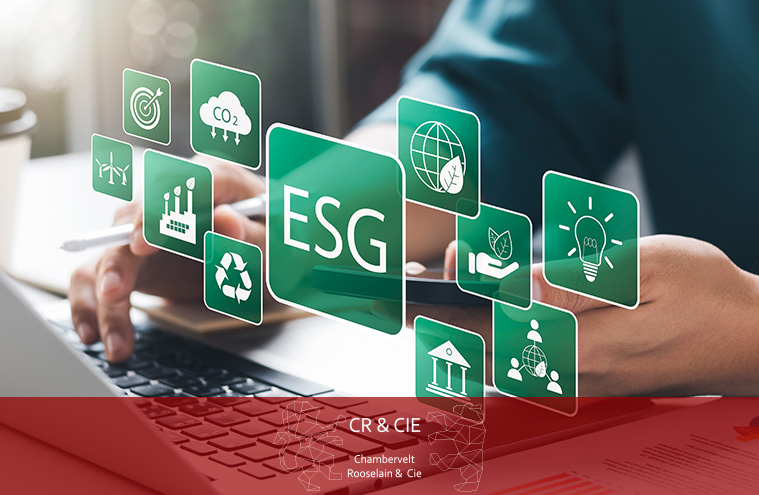

When investing money, many people are interested not only in attractive returns but also in making a contribution to climate protection or ethical and social concerns. They want to opt specifically for sustainable investments and support companies that are concerned about environmental protection, resource conservation and fair production and working conditions. We'll now show you what you should look out for if you want to invest green.
When you invest your money, you may want it to remain secure over a longer period of time. Alternatively, you can accept higher investment risks and hope for attractive interest rates and returns. In addition to interest rates, returns and the preservation of the value of your capital, there is another factor that can play a role in the decision in favor of a particular form of investment: sustainability. The development of sustainable investment funds in recent years shows how important sustainability is to many people:
Until now, sustainability has not been a classic criterion for assessing an investment. In the meantime, however, more and more people are deciding to support companies that act sustainably with their capital and to invest in them specifically.
Sustainable investments are those that flow specifically into companies that have decided against climate-damaging work and behavior patterns, against child labor, unfair working conditions and for resource protection. This means that if you invest sustainably, you are specifically supporting companies with green or high ethical standards.
In principle, there are (still) no uniform standards for sustainable investments. That's why each provider can define for itself what it means by terms such as "social," "ecological" or "green" and assign corresponding name suffixes. In order to be able to assess whether an investment meets your understanding of sustainability, you should therefore inform yourself in detail about the product.
Some funds and indices can also help you with sustainable investing. They do not even include companies that are active in critical industries (such as weapons of war, alcohol or genetically modified food). In addition, the companies eligible for the fund or index must be measured against each other on the basis of relative sustainability criteria.
Only those companies are then included in the indices or funds which can demonstrate the - comparatively - best results in a sector. This approach is called the "best in class" approach.
Which companies are among the most sustainable in their sector is determined by analysts or specialized rating agencies. They rate companies according to ecological and socio-political aspects as well as corporate governance criteria. The evaluation criteria used are known as ESG criteria.
The abbreviation ESG stands for Environment, Social and Governance. ESG ratings therefore assess how sustainably companies operate in the environmental, social and governance areas. When evaluating these criteria, analysts and rating agencies use the environmental targets of the EU Taxonomy Regulation as a basis. These are:
In addition to environmental goals, responsible corporate conduct also plays a role in the ESG rating. In particular, this means that companies must respect human rights, fight corruption, and comply with the principles of fair competition and tax regulations.
The ESG criteria mentioned are not uniformly defined and regulated. This means that rating agencies have a lot of room for interpretation when evaluating investments and companies. Investors are therefore not always able to understand why exactly the stocks selected in each case are represented in a fund that is considered sustainable.
This is often due to the fact that the assessment of sustainability depends on personal values: While companies involved in nuclear power may be considered sustainable by some people, others have a contrary opinion on this.
If you really want to invest sustainably, you should therefore carefully research selected ETFs and other forms of investment that are considered sustainable. This way you can make sure that your investment really meets your sustainability requirements. In addition to the ESG rating, you can also use the ESGI rating by Dr. Andreas Beck and Lucas von Reuss as a guide.
The ESGI rating is a new rating system that expands ESG. In addition to the ESG criteria, it also includes the area of "innovation" or "impact" in the rating. In this way, companies and investment forms are identified that not only comply with the actual specifications in the area of sustainability, but also actively invest in green progress and sustainable patents and further developments.
Investments are not safer simply because they are designed to be socially and environmentally responsible. Nor does sustainability say anything about the stock market performance of an investment. Rather, the risk always depends on the type of investment you choose:
If you opt for a sustainable investment in the form of participation in large projects such as solar or wind farms or those for the reforestation of forests, your investment tends to be risky. If you want to minimize your risks, such investments should therefore not be the focus of your investment.
It is safer to invest in broadly diversified equity funds. With their help, you can also participate in sustainably managed companies. However, you spread your investment risk across different companies and industries. Exchange-traded equity index funds (ETFs), which are geared toward sustainability, are a particularly straightforward and inexpensive investment option for private investors. They follow ethical criteria, are cost-effective and keep your investment risk moderate.
Another way to invest your money sustainably is to open a call money account with a sustainable bank. Here you take virtually no risk - but due to the low interest rates, you cannot expect any significant returns either.
If social and ecological aspects are important to you in connection with your investment, you can tell your investment advisor this. If they know your investment objective, they must take this into account when making their recommendation. By the way: If you already have an investment in the form of a Riester pension or a Rürup pension, your provider must inform you in writing once a year whether and to what extent it takes social, ethical or ecological concerns into account when investing your paid-in contributions. This is required by the Retirement Provision Contracts Certification Act.




ask the experts
Get to know us